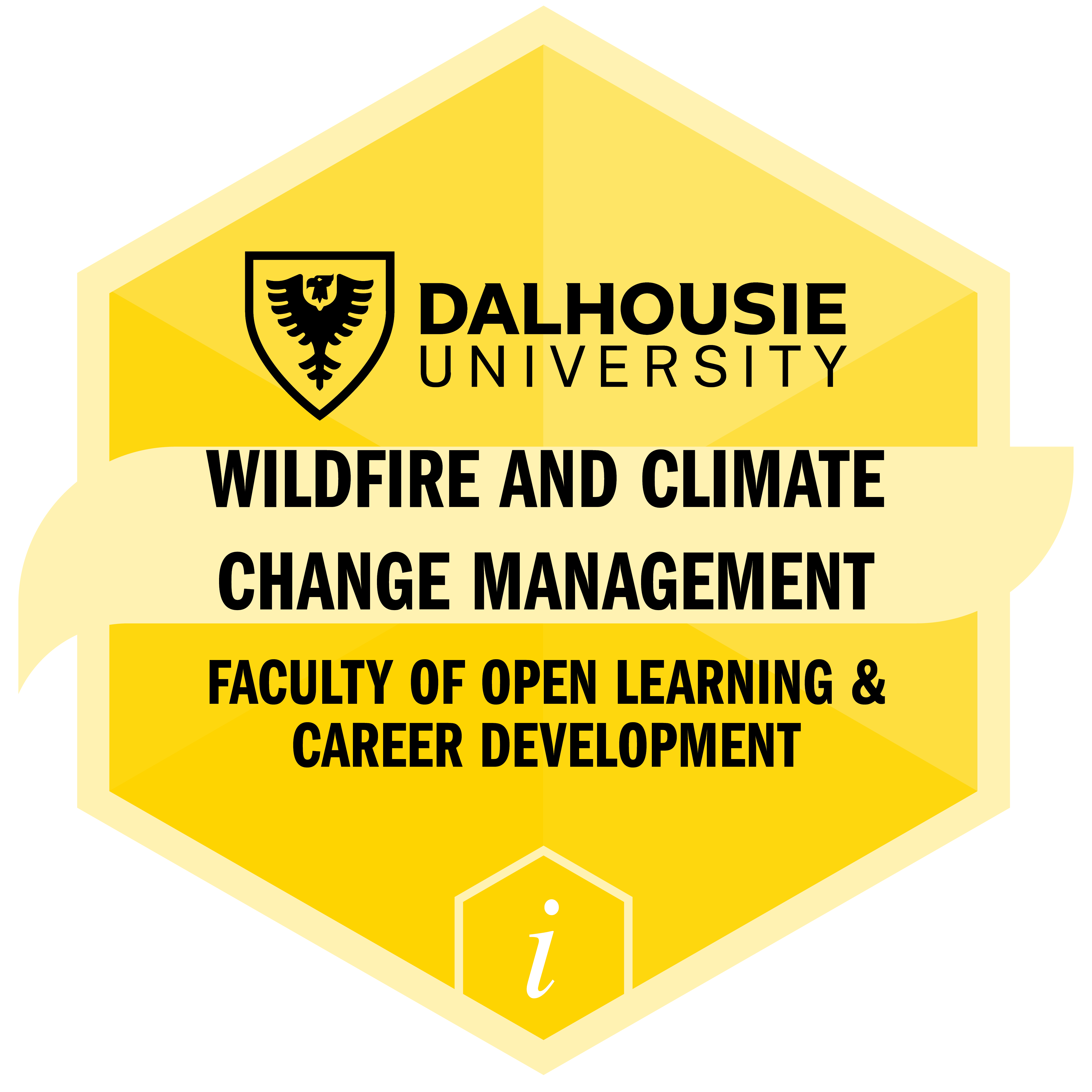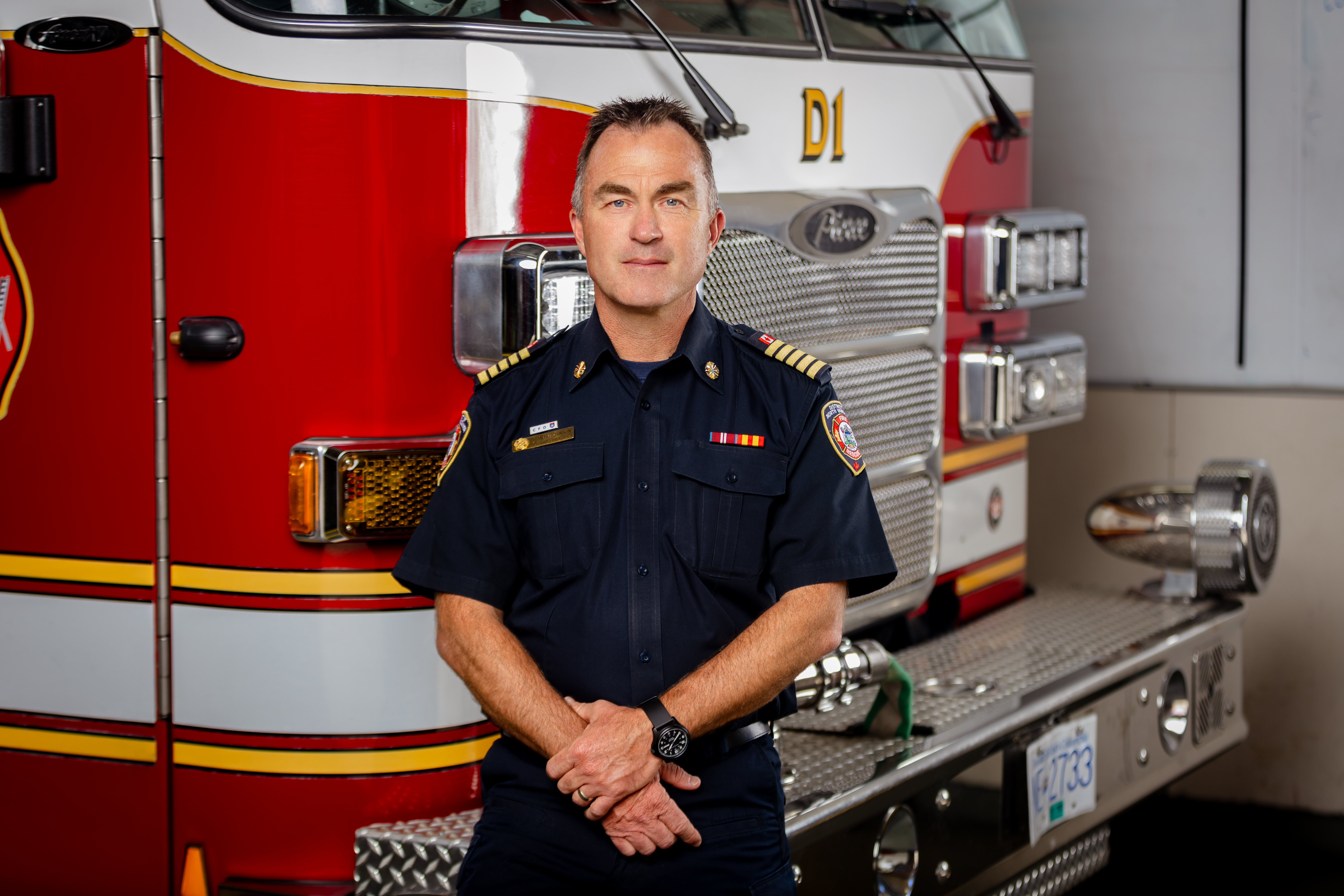Course Description
Climate change related disasters in Canada have never been more formidable. The 2023 wildfire season was by far the most destructive on record. Floods, hurricanes, drought, and other events have cost billions, cost lives, and are only increasing in severity. This course will show how understanding climate change forms the basis for responding to the natural disasters that come with it. There will be a focus on wildfire and climate change resilience, highlighting how different levels of government, indigenous communities, global emergency response communities, and everyday fire departments can tackle wildfire and climate change threats. Additionally, wildfire operations and the Canadian support mechanisms and resources available to effectively mitigate and manage these disasters will be explored.
Course Outline
- Module 1: Identifying Impacts and Trends of our Changing Climate
- Module 2: Wildfire Resilience: Municipalities and Fire Department Best Practices
- Module 3: Wildland Wildfire Synopsis
What You Will Learn
- Identifying trends in climate change models: past, present, and future.
- Greenhouse gas, global warming, and the transformations to our natural environment.
- Mitigating human-caused climate change.
- An awareness of First Nation wildfire protection measures.
- Exploring successful wildfire resilience activities in Canada and beyond.
- Canadian wildfire impacts within a global context.
- Systems for effective wildfire suppression operations at local, provincial, national, and international levels.
Microcredential
This course provides learners with the opportunity to earn a microcredential. A microcredential is evidence of a skill or competency that is employment related. Dalhousie microcredentials are developed in collaboration with employers, industries, and/or organizations that relate to the content. A microcredential can be displayed on social media pages, digital resumes, personal webpages, and in email signatures. To earn the microcredential in this course, learners will need to successfully complete a competency-based assessment.
Learn more about this microcredential here.
Notes
Our instructor, Brian Hutchinson, is a well-known and respected expert in firefighting, wildfire response, and fire service education. He is currently the Superintendent of Provincial Operations - Fire Services at the BC Wildfire Service. See his LinkedIn profile here: LinkedIn - Brian Hutchinson.
The Faculty of Open Learning & Career Development recommends an intermediate level of English language proficiency for the most effective learning and participation in our online and face-to-face courses. A list of minimum recommended scores on some common English tests can be found on our website. If you have questions about your English language proficiency and ability to succeed in this course, please contact openlearning@dal.ca.
Recommended For
Anyone in a leadership role for the planning and prevention of wildfire and climate change crises.Applies Towards the Following Certificates
- Certificate in Advanced Fire Service Administration : Electives
- Diploma in Executive Fire Leadership : Electives
- Diploma in General Fire Leadership : Required - Certificate in General Fire Service Administration, Elective - Certificate in Advanced Fire Service Administration, Elective - Certificate in First Responder Health and Wellness, Elective - Certificate in Wildfire and Climate Change Adaptation Management
- Certificate in General Fire Service Administration : Electives
- Certificate in Wildfire and Climate Change Adaptation Management : Required

